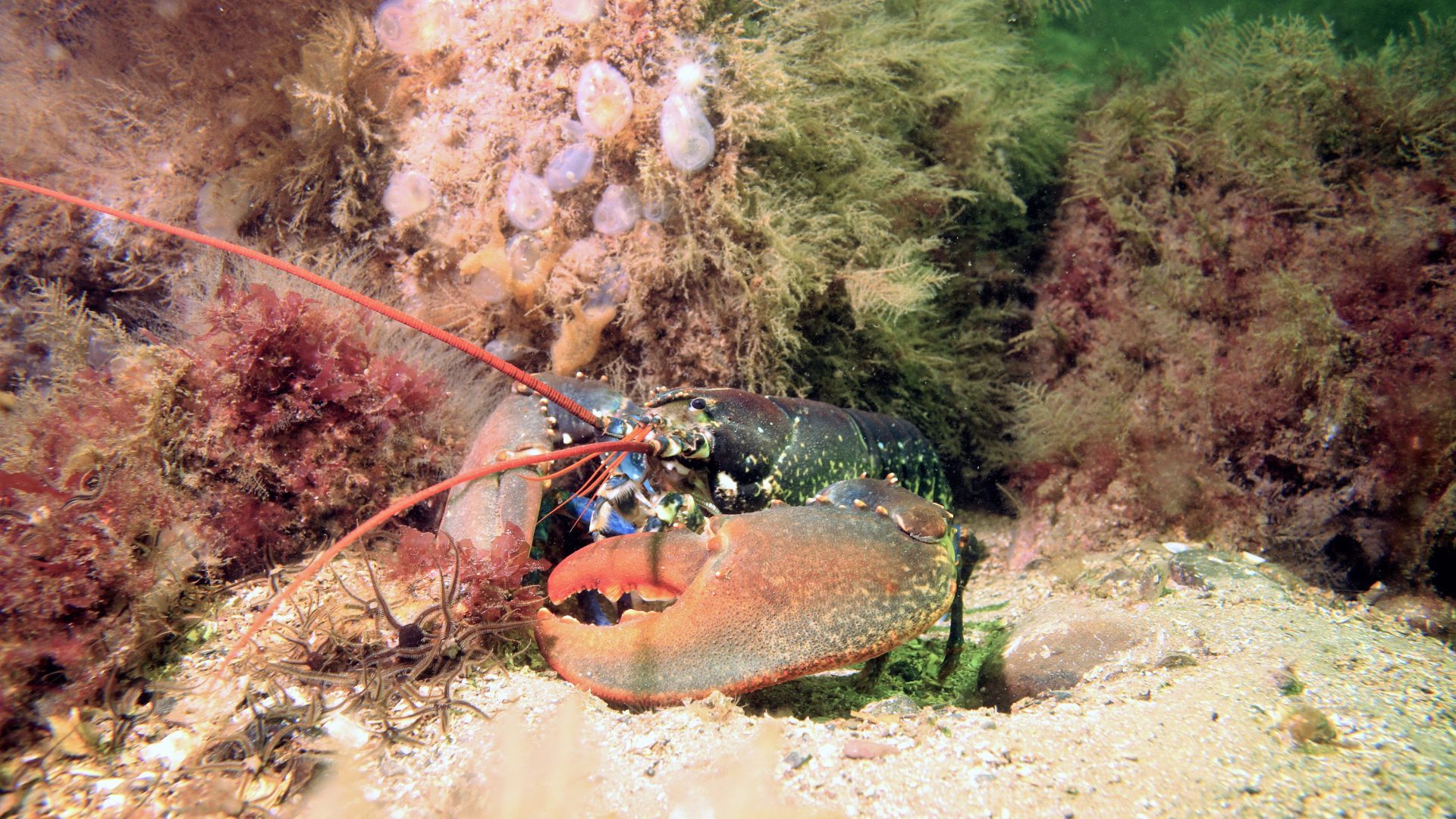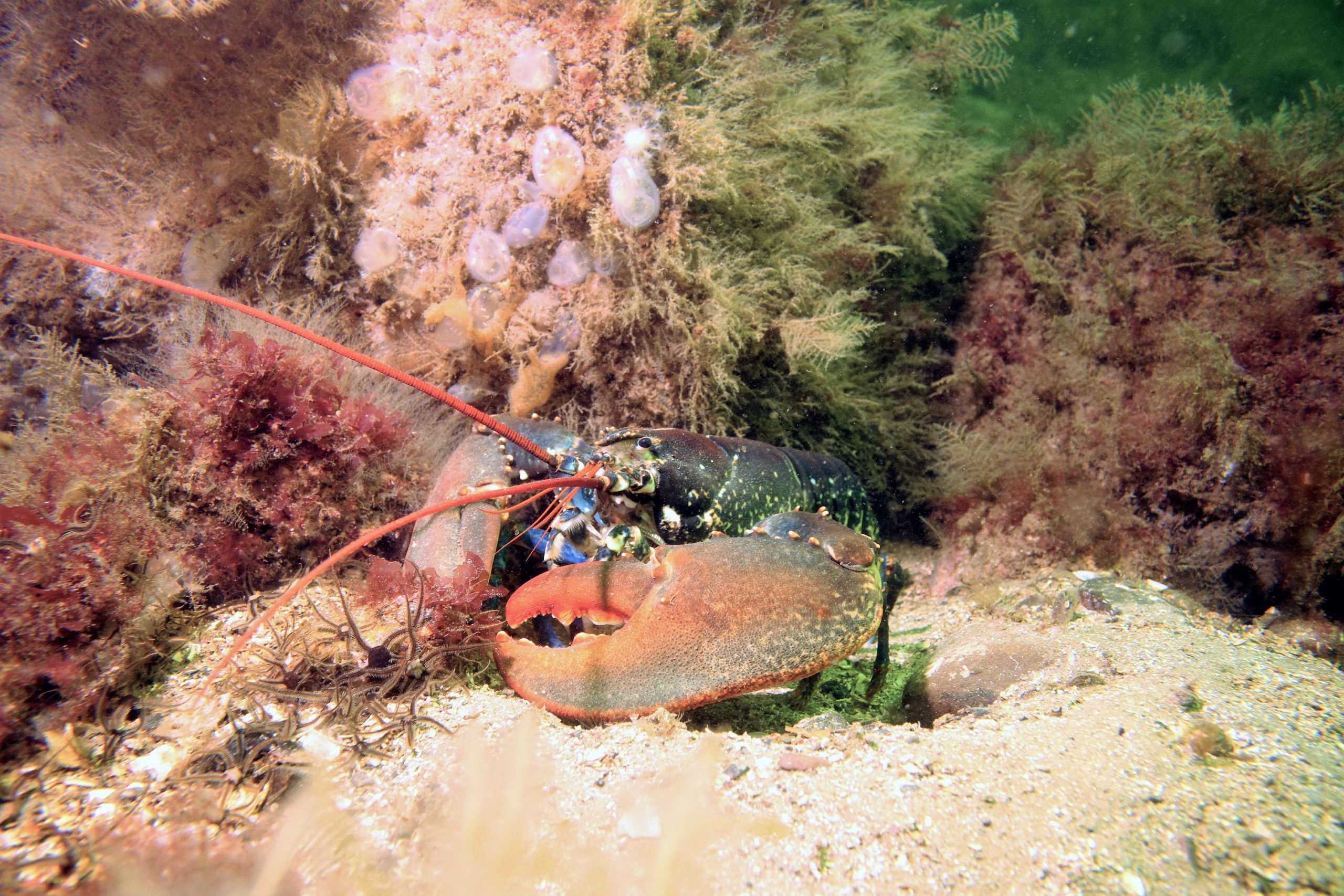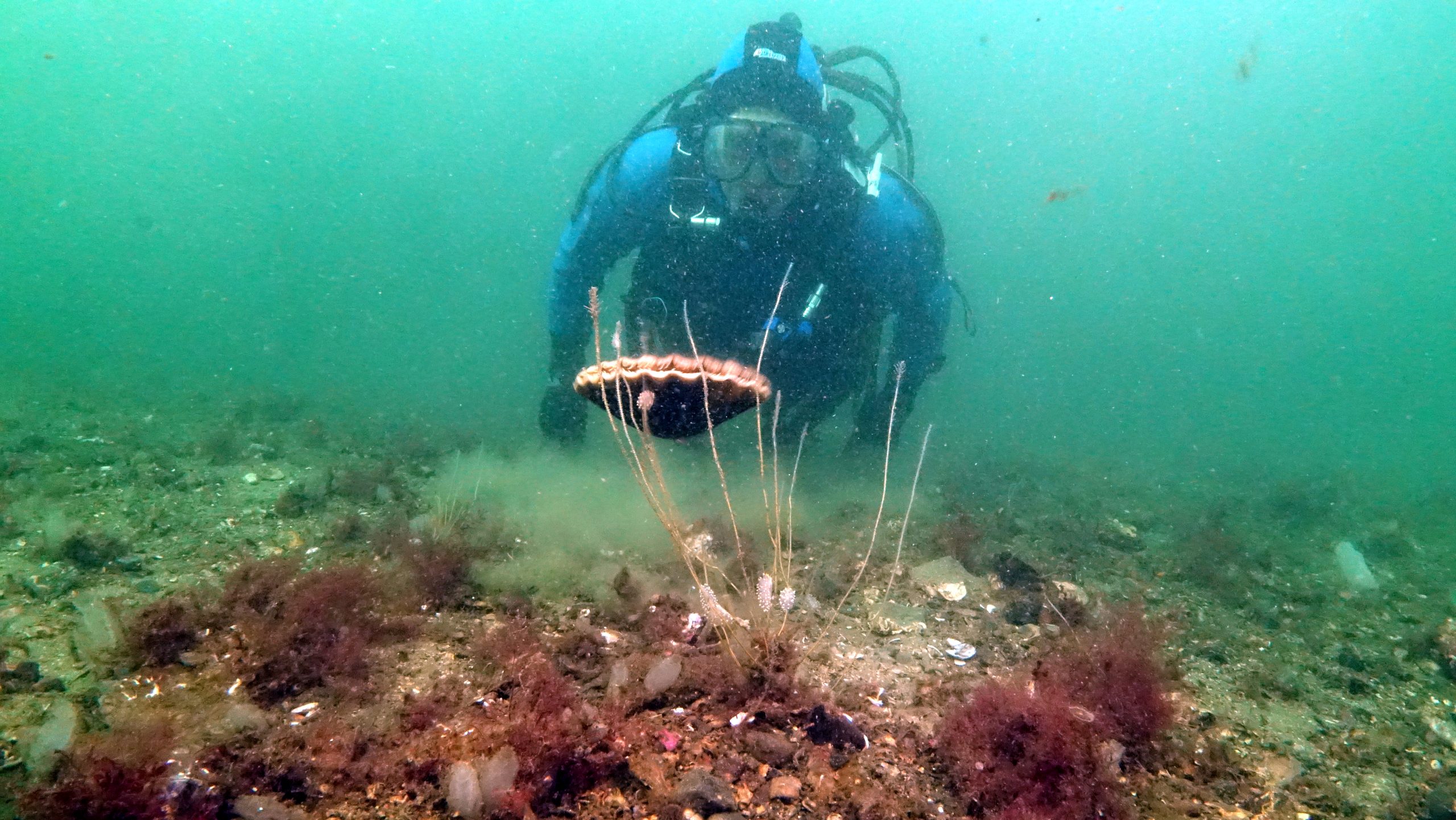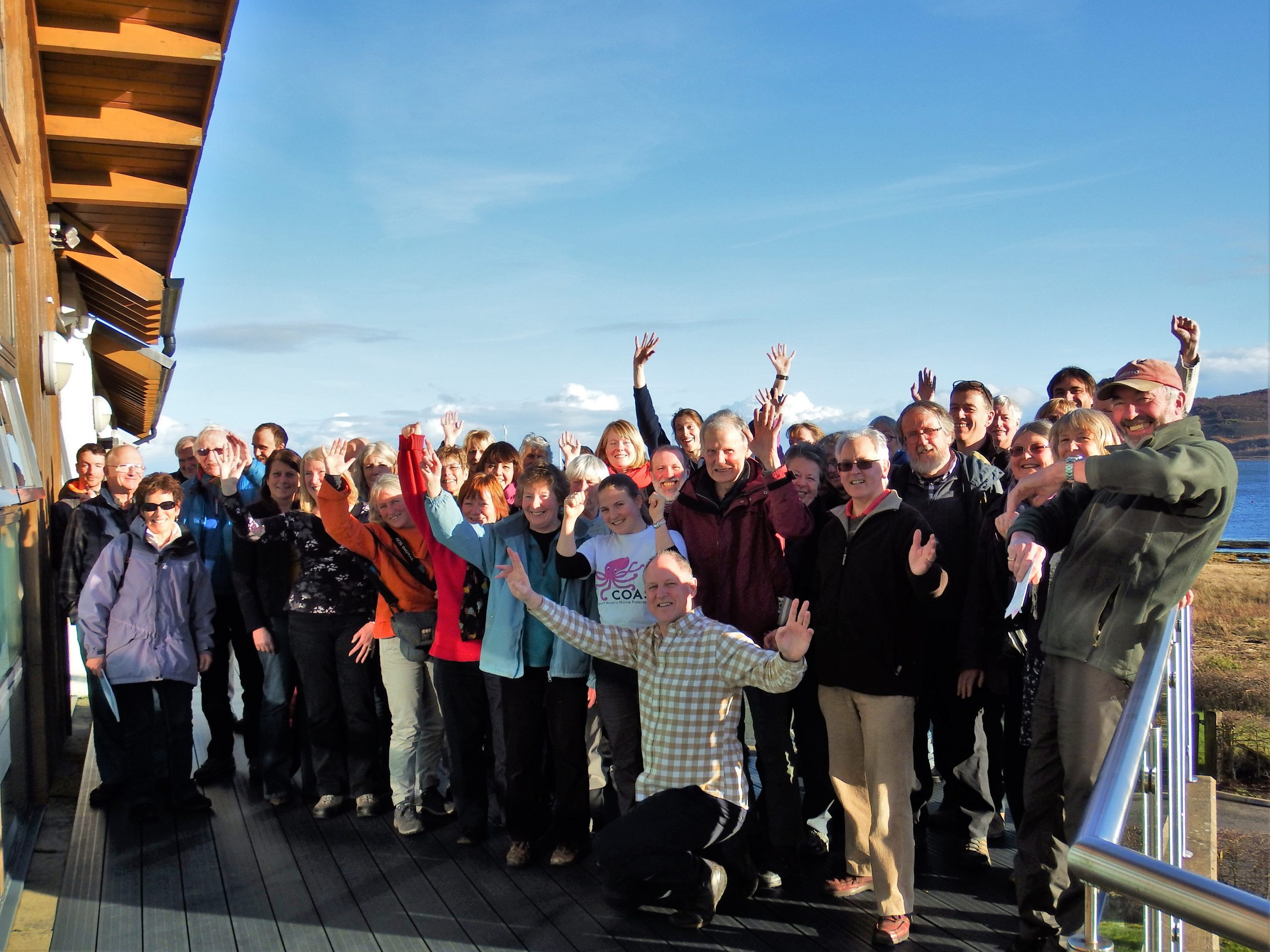
Vision for the Ocean, Community of Arran Seabed Trust (COAST)

COAST – Copyright Howard Wood
This blog is part of our ‘Vision for the Ocean’ series.
Launched on World Ocean Day, the series showcases inspirational stories of people and organisations who are seeking to protect the ocean and all it makes possible. We’re proud to call all these ocean lovers our friends and our partners in the fight for our blue planet.
By working together, we can achieve a thriving ocean, thriving people.
The Community of Arran Seabed Trust (COAST) is a global pioneer in community-led marine conservation. In their No Take Zone in Lamlash Bay, Scotland, no fishing of any sort is permitted. The project has revived sealife and shown how powerful community-led projects can be. It’s a prime of example of hope for the ocean, and what it could look like if we get things right.
Jenny Crockett, COAST’s Outreach and Communications Manager has written about how the project started, what it has achieved, and what lessons can be learned.
“COAST was established in 1995 by two local scuba divers; Howard Wood and Don MacNeish. Having dived the waters around the Isle of Arran within the Firth of Clyde for many years, they witnessed first-hand the catastrophic collapses of the Clyde sea fisheries, damage to seabed habitats and the loss of marine life caused by unsustainable fishing.
Howard and Don witnessed the decline and destruction in their local waters with dismay; it wasn’t until Don returned from a trip to New Zealand in the late 1980s that the two friends began to have even a glimmer of hope to recover what was lost. At this time, New Zealand were pioneering No Take Zone’s (NTZ) – areas where all fishing is banned – and Howard and Don began to study the positive and negative approaches to community established marine reserves. Determined to protect the rich fishing heritage around Arran for future generations, they founded COAST in 1995 and set about getting the local community on board to campaign for a NTZ in Arran’s waters.
The sustained efforts of the community over many years resulted in the establishment of the Lamlash Bay NTZ in 2008 and, following this, the designation (2014) and subsequent legal protection from mobile bottom fishing (2016) of a larger area known as the South Arran Marine Protected Area (MPA). The MPA (280km2) encompasses the NTZ and was created to protect sensitive marine features through the exclusion of scallop dredging and prawn trawling, whilst promoting low-impact fishing methods, such as creeling and hand-diving.

COAST – Copyright Howard Wood
Benefitting the community
Collaborative research is showing how proper protection of seabed habitats from bottom-towed fishing gear supports the recovery of marine biodiversity, ecosystem function and populations of commercially important species.
In the No Take Zone and Marine Protected Area, there has been a significant recovery witnessed in commercially important stocks, and there is strong evidence of increased habitat complexity within the No Take Zone(1).
The creation of the NTZ and MPA in Arran’s seas are known to have improved biodiversity which has generated vast media interest and stimulated scientific research. It has also improved fisheries for creelers and hand-divers, whilst attracting scuba divers, and other marine-based tourism. All of this is viewed locally as having stimulated the local economy, adding value to the promotion of Arran as an eco-aware destination where islanders and visitors care about and act to protect their environment.
Inspiring others and looking to the future
Ultimately, it is local communities who have the power to demand and effect change, and that’s why COAST worked with Fauna and Flora International to establish the Coastal Communities Network, which now has 18 like-minded community groups working together to build community capacity for marine conservation across Scotland’s coast.
Local communities organising themselves in this way, and demanding a real voice in the management of what is legally a public asset and resource, is crucial to get politicians to regulate our marine environment effectively.
COAST stand with the Our Seas coalition on this, collectively holding the Scottish government to account as we demand binding marine legislation that delivers real change, including the return of an inshore limit to protect habitats and species within Scotland’s seas.
COAST believe that the recovery in the Lamlash Bay NTZ and South Arran MPA provides a blueprint that could be replicated in seas elsewhere. There is a social and economic case for the sustainable spatial management of Scotland’s inshore waters, as marine tourism accounts for 14% of all tourism in Scotland, and contributes to 4% of Scotland’s economy – this is equivalent to the contribution made from fisheries and aquaculture combined. Our inshore waters provide a solution to both climate change and biodiversity loss, but we need to conserve what we still have and help recover what was once there; our marine environment must be cared for as a whole if it is to thrive and support local livelihoods.
Communities have a vital role in taking action; we have proof of concept here in Lamlash and around Arran, but what we don’t have is the political will and leadership to move forward with effective MPA’s and effective inshore fisheries management. But just like the NTZ, COAST will continue to drive this forward through people power and communities working together.
To find out more about the work of COAST, follow them on their social channels at @arran.coast on Instagram and Facebook, @ArranCoast on Twitter, or on their website.

COAST Community celebrate their MPA accreditation
References
(1) Marine conservation Begins at Home: How a Local Community and Protection of a Small Bay Sent Waves of Change Around the UK and Beyond.
